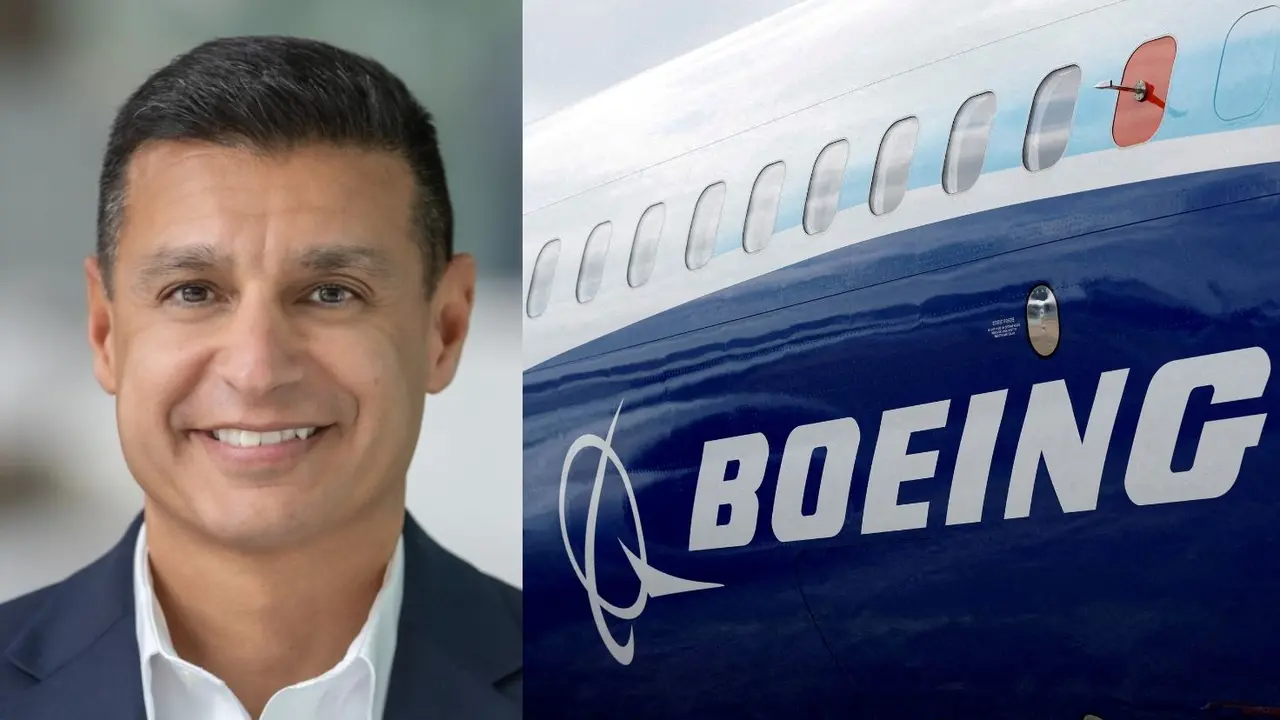Updated 1 July 2025 at 11:19 IST
Meet Jay Malave, Boeing’s New CFO — Who Inherits A Company Mired In Its Worst Turbulence Yet
Jesus “Jay” Malave has been named Boeing’s new Chief Financial Officer at a time when the company is grappling with serious challenges. From a deadly 787 crash to lingering quality and safety scandals, Malave steps into a role that will require steady leadership and tough decisions as Boeing struggles to rebuild trust and stabilise its operations.
- Republic Business
- 4 min read

Boeing’s leadership is undergoing a major transition just as the company faces one of its toughest moments in years.
On August 15, Jesus “Jay” Malave will officially take over as Executive Vice President and Chief Financial Officer (CFO) of Boeing, stepping into the role during a period of heightened scrutiny, operational challenges, and shaken public trust.
A Seasoned Financial Leader
Jay Malave brings more than 25 years of experience in aerospace and manufacturing finance to Boeing. Most recently, he served as CFO of Lockheed Martin from 2022 to 2025.
Before that, he was Senior Vice President and CFO at L3Harris Technologies and held senior finance roles at United Technologies Corporation (UTC), including as CFO of both Carrier Corporation and UTC Aerospace Systems.
Advertisement
Malave began his career as a compliance analyst with the U.S. Department of Labour and steadily rose through the ranks at Pratt & Whitney and UTC, taking on key finance leadership positions.
His career spans critical areas including investor relations, corporate planning, treasury, audit operations, and integration of major acquisitions.
Advertisement
He holds a bachelor’s degree in mathematics from the University of Connecticut, a master’s in accounting from the University of Hartford, and a Juris Doctor from the University of Connecticut School of Law.
Taking Over in a Time of Crisis
Malave’s appointment as CFO comes at a time when Boeing is facing intense public and regulatory pressure following the recent crash of an Air India 787 Dreamliner, which killed nearly all 242 people on board.
While the cause of the crash is still under investigation and no link to Boeing’s manufacturing has been confirmed, the incident has once again put the spotlight on the company’s safety practices.
“This is the first-ever crash of a 787 jet, our most advanced model,” said Boeing CEO Kelly Ortberg in a message to employees. “Safety is foundational to our industry and is at the core of everything that we do.”
Ortberg and Boeing Commercial Aeroplanes head Stephanie Pope have cancelled their planned appearance at the upcoming Paris Air Show, choosing instead to stay focused on the investigation and support their teams.
A Legacy of Safety Concerns
Boeing's 787 Dreamliner has built a reputation for safety and innovation since its introduction in 2011, thanks to its lightweight design and fuel efficiency.
The crash comes after a difficult few years for Boeing. The 737 MAX line has been under heavy scrutiny since two fatal crashes in 2018 and 2019. A door plug blowout on a MAX 9 aircraft in January 2024 further damaged the company’s reputation and led to the ousting of former CEO Dave Calhoun and other top executives.
Transportation Secretary Sean Duffy recently visited Boeing’s 737 factory and emphasised that while progress is being made, the company is still working to rebuild trust. “They've lost trust,” Duffy said. “They are making progress, but they still need tough love.”
Duffy has kept in place a 38-plane-per-month production cap on the 737 MAX until Boeing proves it has made adequate improvements in quality and safety.
Malave’s Financial Role — And Why It Matters
As CFO, Malave will not only manage Boeing’s financial health but also help restore investor confidence and guide strategic decisions in a time of deep uncertainty. He will be responsible for financial strategy, business planning, investor relations, treasury, and audit operations, as well as managing global facilities.
“Jay will become CFO at an important time in helping build Boeing's next chapter,” said Ortberg. “He is a well-respected financial and business leader, and brings decades of experience.”
Given Boeing's recent $243 million settlement over a criminal fraud charge related to past safety failures and growing concerns about internal quality control and oversight, Malave’s ability to balance financial discipline with strategic transformation will be critical.
Published By : Anubhav Maurya
Published On: 1 July 2025 at 11:16 IST
